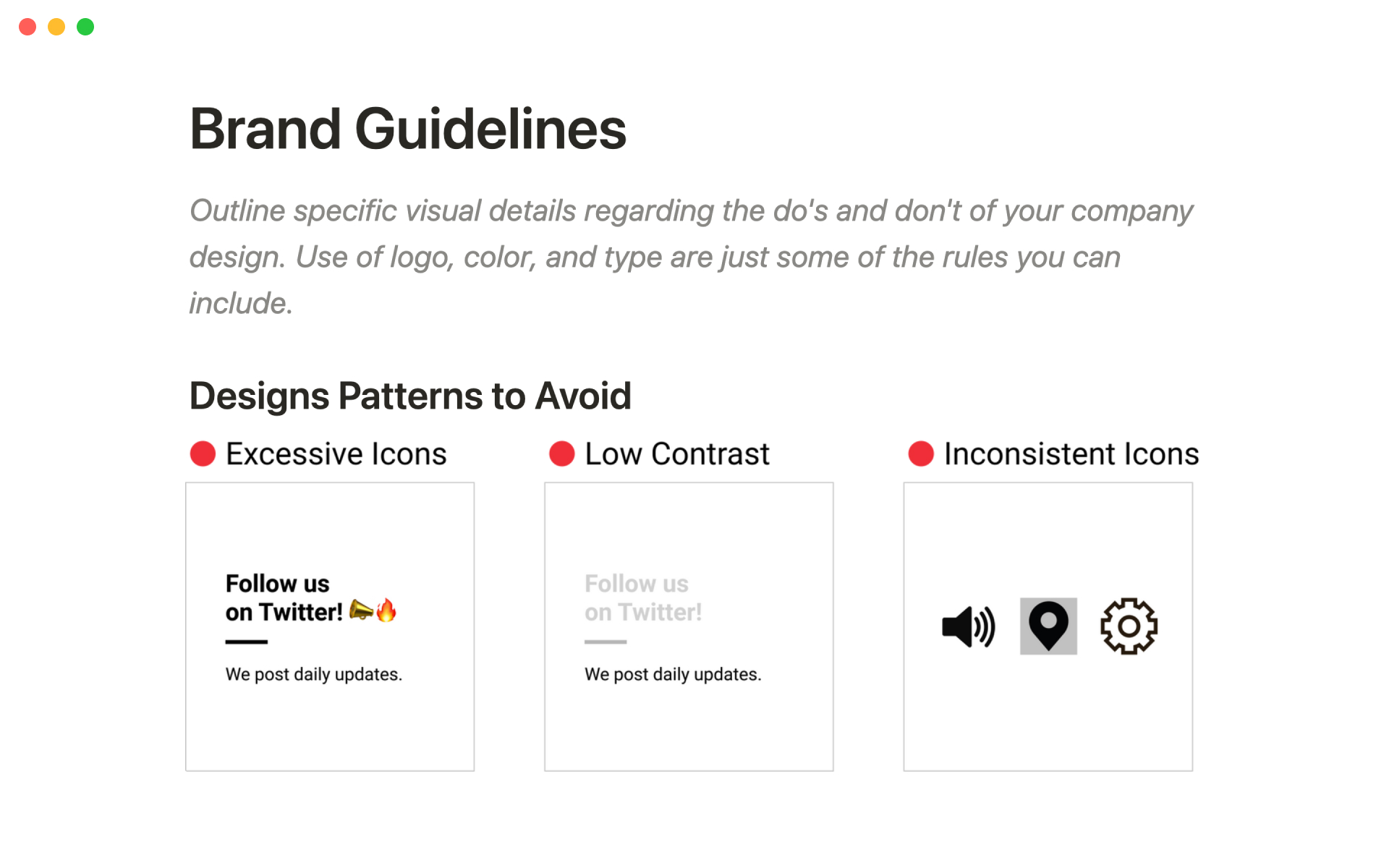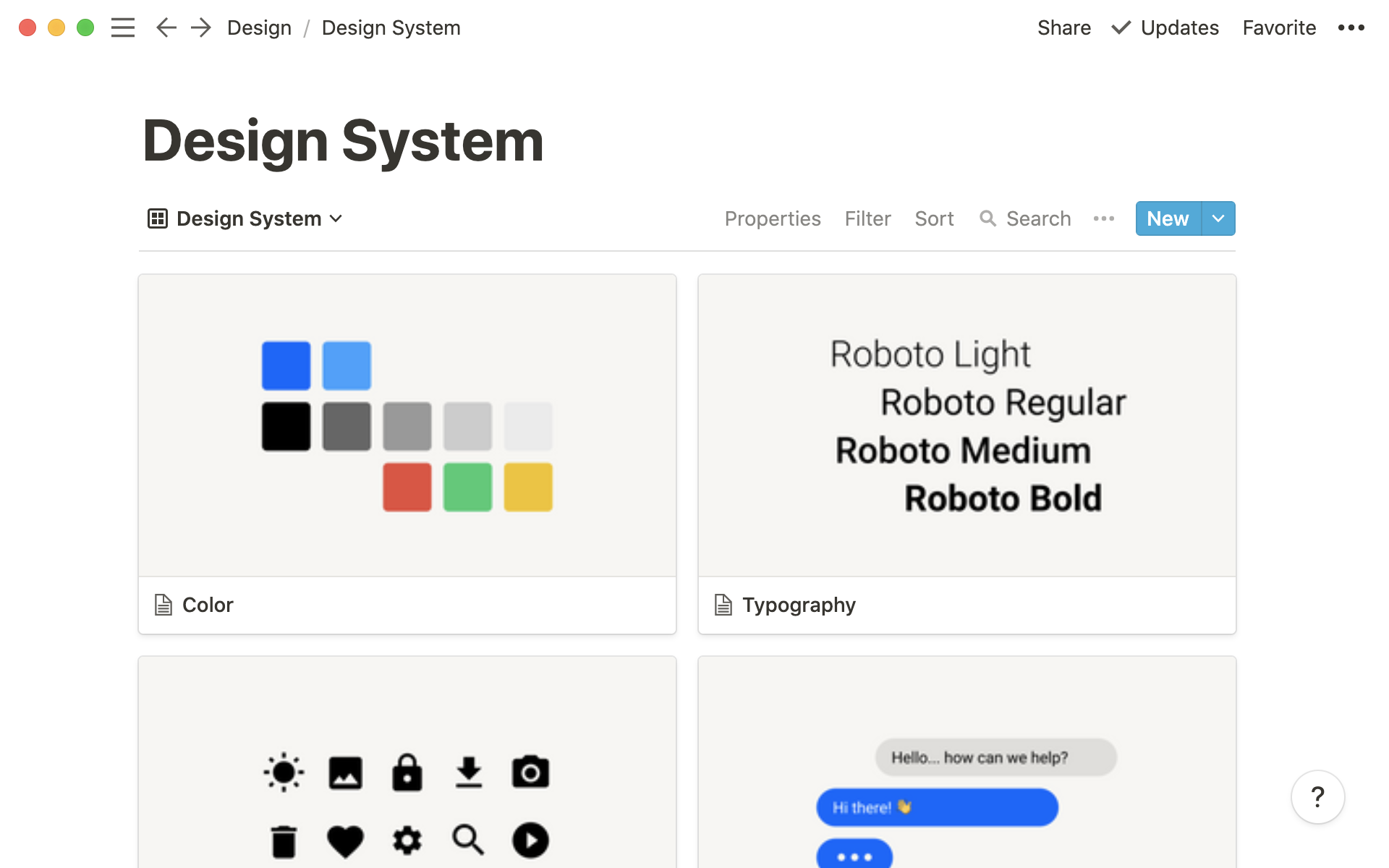Build a centralized design system to simplify your workflow and create cohesive products — all in Notion.

Use Notion to create a design system that’s connected and comprehensive
A design system is a hub for style guides and reusable elements which teams can reference throughout the design process. It helps save time and build visual consistency across your brand by creating standard practices that everyone can use.

With Notion, you can centralize this info to:
Build a central database
Detail and manage individual design elements
Create organized design galleries
Establish a clear visual brand identity
Answer system design questions before your team has to ask

How to create a design system
Sign up for Notion and invite your team.
Create a database by selecting
tableand then clickingdatabase. Or, create a database inline by typing/database.Populate it with individual pages for different design elements.
Add custom properties and views.



Use Notion to build a design system that’s uniquely you
A centralized design system helps you create a visual identity so when people see your brand, they know who you are.
FAQs
Why do you need a design system?
Why do you need a design system?
Here’s how a design system can help you:
Streamline the design process
Ensure product consistency
Save time
Contribute to a brand ecosystem
What are the main components of a design system?
What are the main components of a design system?
Some primary components of a design system include:
Visual design elements — color, typography, and imagery
Interaction design elements — buttons, form fields, and animations
Design guidelines and principles — style guides that describe the look and feel of your products
What are some design system best practices?
What are some design system best practices?
Some examples of design system best practices include:
Conducting an audit of your existing design assets
Establishing a consistent visual language that fits your brand identity
Creating comprehensive documentation so your processes are clear and assets aren’t ambiguous
Assigning clear ownership of the design system to maintain your design system